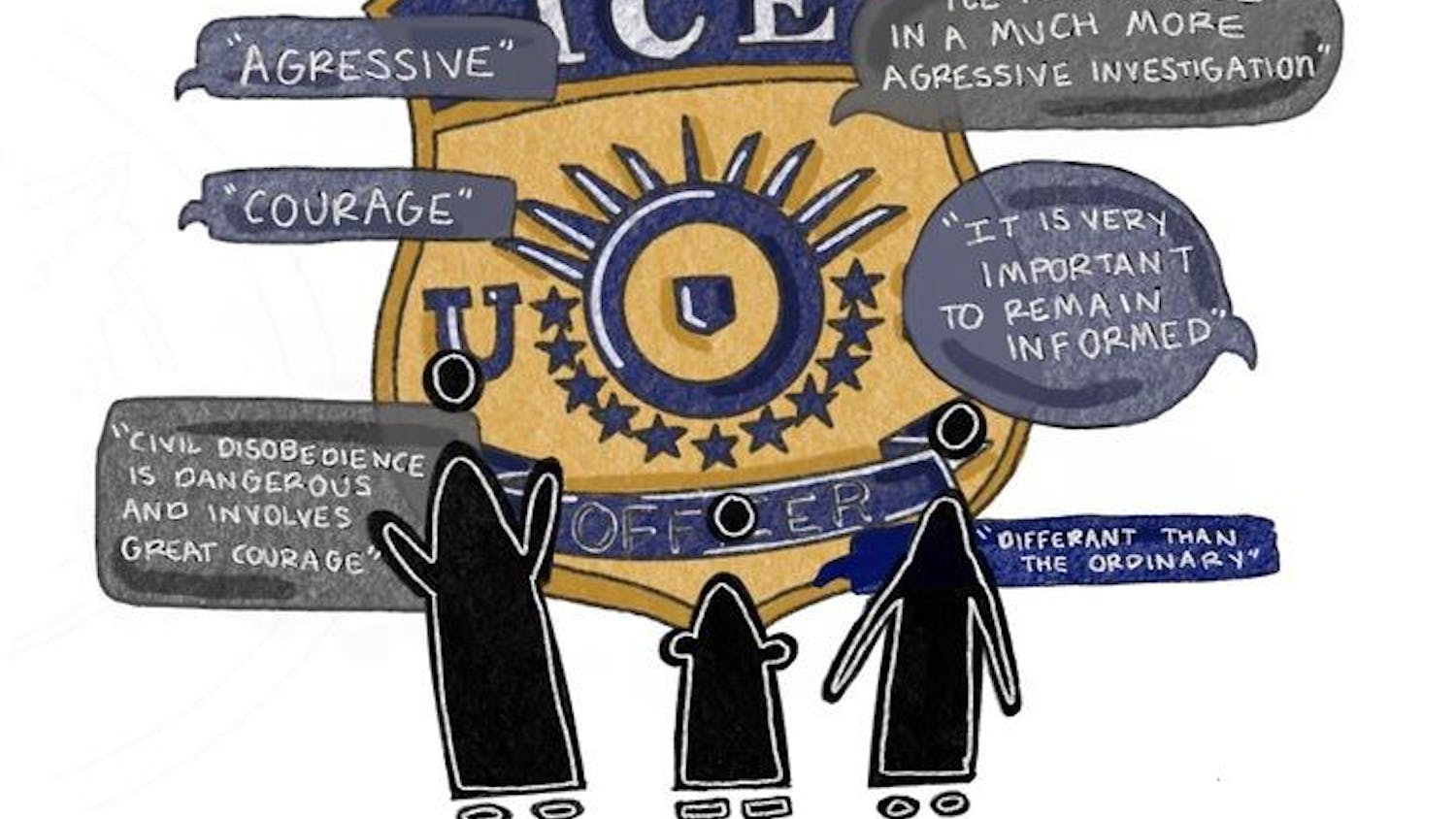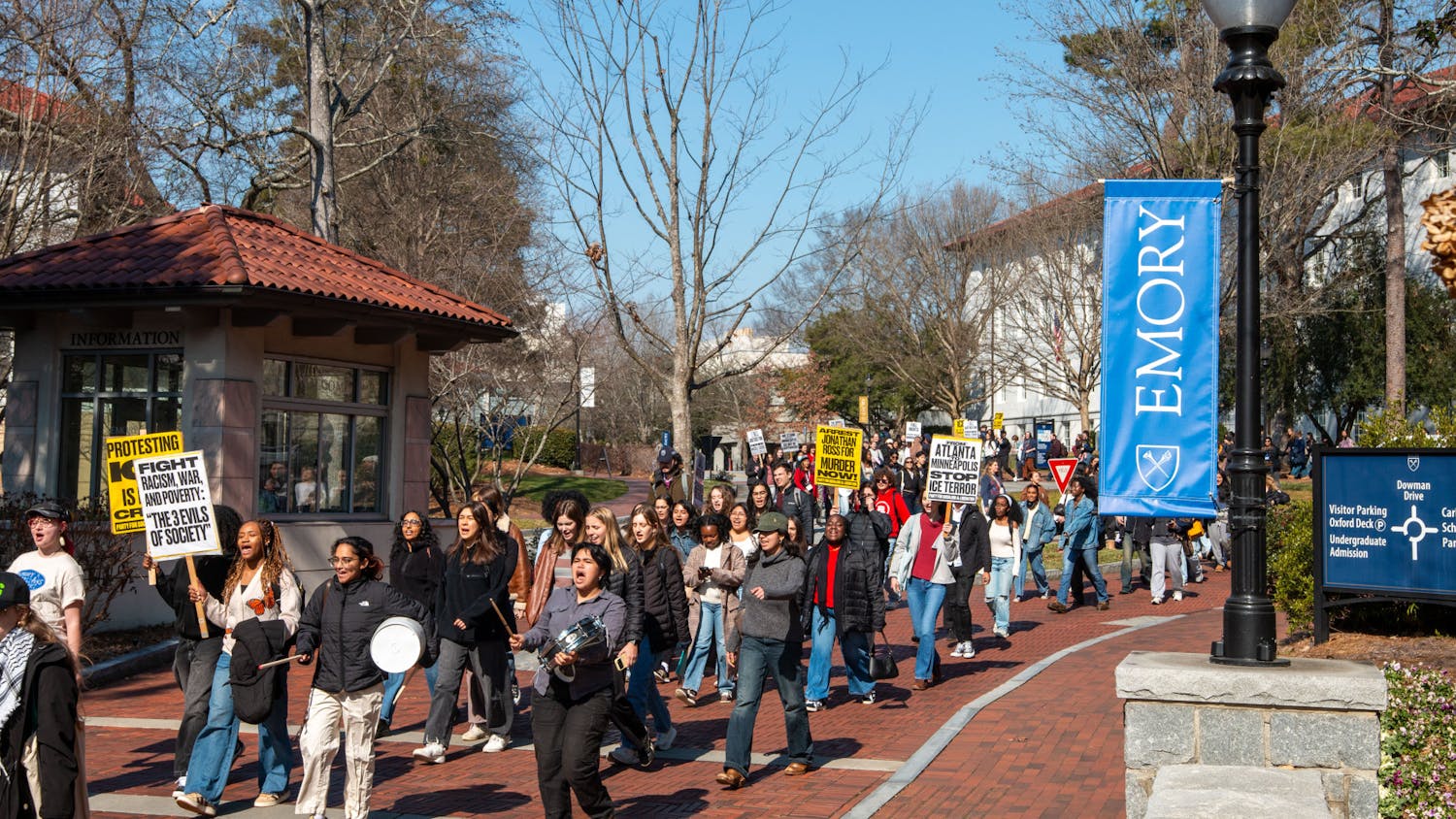In honor of Martin Luther King Jr. Day, Emory University hosted a week-long virtual celebration that honored the life and legacy of the American civil rights movement.
The Department of African American Studies’ annual keynote address featured co-founder and national chairman of the Black Panther Party Bobby Seale. The Jan. 18 event highlighted the birth of his political party and the far-reaching influence his activism imposed on future generations.
The conversation was facilitated by Assistant Professor of African American Studies Jessica Lynn Stewart.
Niara Foster (22C), outreach chair and newsletter editor of Emory’s Black Mental Health Ambassadors, introduced Seale with a brief summary of his notable accomplishments within the Black Panther Party and his community.
“Bobby Seale is one of a new generation of young African American radicals who broke away from the usually nonviolent civil rights movement to preach a doctrine of militant Black empowerment,” Foster said. “Even after the Panthers faded from public view, Seale took on a quieter role, working to improve social services in Black neighborhoods and other causes.”

Seale opened his discussion by explaining his technology-oriented background, which was cultivated by his experience as a carpenter, builder and architect for his father. He later joined the Air Force, where he specialized in structural repair in the aircraft department, working for the Gemini Missile program in the engineering department. During the day, he took engineering design classes at Merritt College (Calif.).
Though Seale graduated at the top of his class, a steel strike later forced him to move back to his home in Oakland, California. He then began to look towards helping his Black community.
“Martin Luther King Jr. was the first Black leader that I went to hear speak,” Seale said. “That brother caught my soul, because he wasn’t preaching hell and damnation — he was talking about our constitutional, democratic, civil human rights.”
Inspired by King, Seale and Huey P. Newton launched the Black Panther Party on Oct. 15, 1966. The organization led the first rally ever at Merritt. Over the next few years, the group amassed 5,000 members, including 49 chapters and branches in Black communities throughout the nation.
Seale also founded the Free Breakfast for School Children Program. He said the program,
along with free health clinics created by the Black Panther Party, weren’t just created because he wanted to be good. His motive was also political, as his ultimate goal was to get people registered to vote.
“The right to vote was important to me,” Seale said. “In California, we had the right to vote — we were just miserably unregistered to vote. Until you get registered, we can’t take over some of these political power seats.”
In early 1965, there were only 55 African American elected officials out of 500,000 total political seats in the United States, according to Seale.
Although the Black Panther Party does not exist as a political party anymore, Seale noted that he is proud of how young African American activists have carried on a history of activism by creating the Black Lives Matter movement.
“The very fact that communications technology had documented George Floyd’s murder, right in the face, that was it,” Seale said. “It caused the BLM movement across the country, and it was there for a while because of the other killings and murders going on, and they got that thing together in a matter of one to three weeks.”
With over 20 million supporters in the U.S. protesting daily at city halls and government seats across the nation in the summer of 2020, Seale said that the movement resonated with the purpose of the Black Panther Party.
“I loved it, I understood it,” Seale said. “It was a continuation of the murder of our Black people, coming to the forefront again.”







